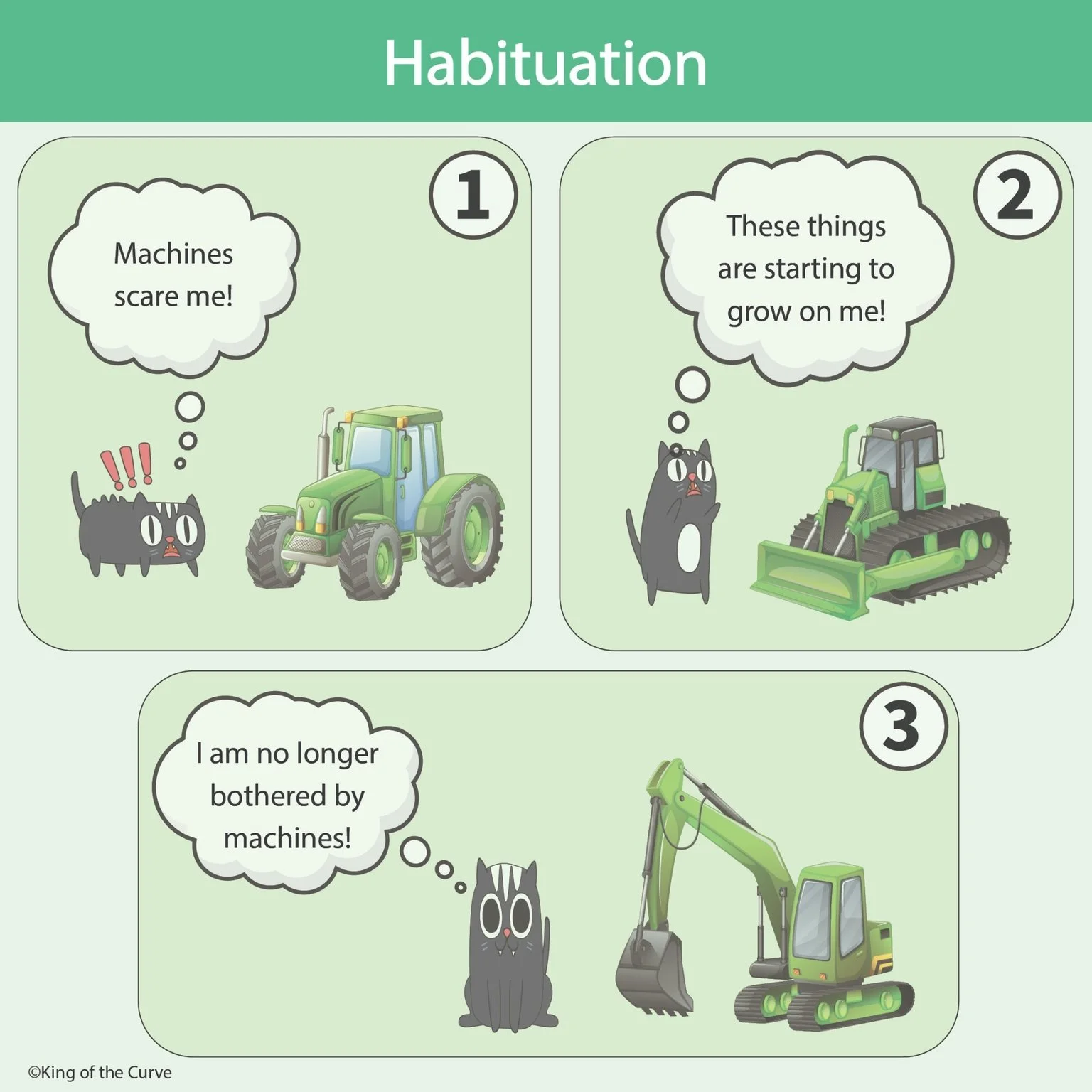
🧠 Understanding Psychological Theories of Mental Disorders for the MCAT
A high-yield breakdown of psychodynamic, behavioral, cognitive, and humanistic theories of mental disorders. Ideal for MCAT psychology prep, featuring a King of the Curve visual that simplifies complex concepts.

🧠 Neurotransmitters: The Chemical Messengers of the Nervous System
Learn how neurotransmitters like dopamine, serotonin, GABA, and acetylcholine control mood, focus, and memory. Understand their structure, function, and clinical importance for the MCAT, NCLEX, and neuroscience exams.

🐾 Habituation: Getting Used to a Stimulus (MCAT/NCLEX High-Yield)
Understand habituation for the MCAT & NCLEX. Learn how responses decrease with repeated exposure, with KOTC visuals and practice examples.

📘 Fundamental Attribution Error (FAE): Ace It on the MCAT Psych/Soc
Master the Fundamental Attribution Error for MCAT Psych/Soc. See examples, compare related biases, and learn quick recognition tips with a KOTC visual.

🧠 Mastering Language Terminology: Key Concepts for the MCAT & Psychology
Explore the five core components of language—semantics, phonology, morphology, syntax, and pragmatics—and understand their relevance to the MCAT and psychology exams.

👀 Observational Learning: The Psychology of Watching and Doing
Discover how observational learning shapes behavior through imitation and modeling, a key topic for the MCAT and USMLE psychology sections. Featuring a KOTC science image.

🧠 Observational Learning: Mastering Behavior Through Imitation
Discover how observational learning shapes behavior. Learn the mechanisms behind learning by watching others, with real-world applications for the MCAT and psychology.

🧠 Functional Theory of Attitudes: A Key Concept for MCAT Psychology
Understand the four core functions of attitudes—utilitarian, knowledge, self-expressive, and ego-defensive—for the MCAT. Includes examples, applications, and a visual chart.

Instinct Theory and Evolutionary Perspective: Understanding Innate Human Behaviors
Discover how the Instinct Theory and Evolutionary Perspective explain innate, unlearned behaviors across species—including humans. Ideal for MCAT and USMLE prep.

The 3 Components of Attitude for the MCAT: Cognitive, Affective, Behavioral
One of the most frequently tested psych/soc topics on the MCAT is attitude—especially how it's structured. The tri-component model of attitude breaks down attitudes into three parts: cognitive, affective, and behavioral. If you've ever had a belief, a feeling, and then acted on it—you’ve experienced this model in real time.

Associative Learning on the MCAT: Why It Matters and How to Master It
If you're prepping for the MCAT, you already know that psychology and sociology concepts aren't just vocabulary—they're tested in complex passage-based formats. One of the foundational concepts that unlocks an entire category of test questions is associative learning.
With today’s King of the Curve visual, we’ll simplify this concept and show you exactly how it applies to MCAT behavioral science questions.

Recognizing Panic Attack Symptoms: A Must-Know for MCAT and Pre-Med Students
Learn how to recognize panic attack symptoms and their relevance to the MCAT. Understand stress responses, neurotransmitters, and real-world applications in medicine. Read more on King of the Curve!

Act Early, Thrive Later: The Benefits of Early Diagnosis and Treatment
Recognizing the early signs of mental health conditions and seeking treatment can significantly improve patient outcomes. As future medical professionals, MCAT students must understand the importance of early diagnosis, intervention, and long-term management of psychiatric conditions. The MCAT covers these principles in the Psychological, Social, and Biological Foundations of Behavior section, making them essential knowledge for test day and beyond.
